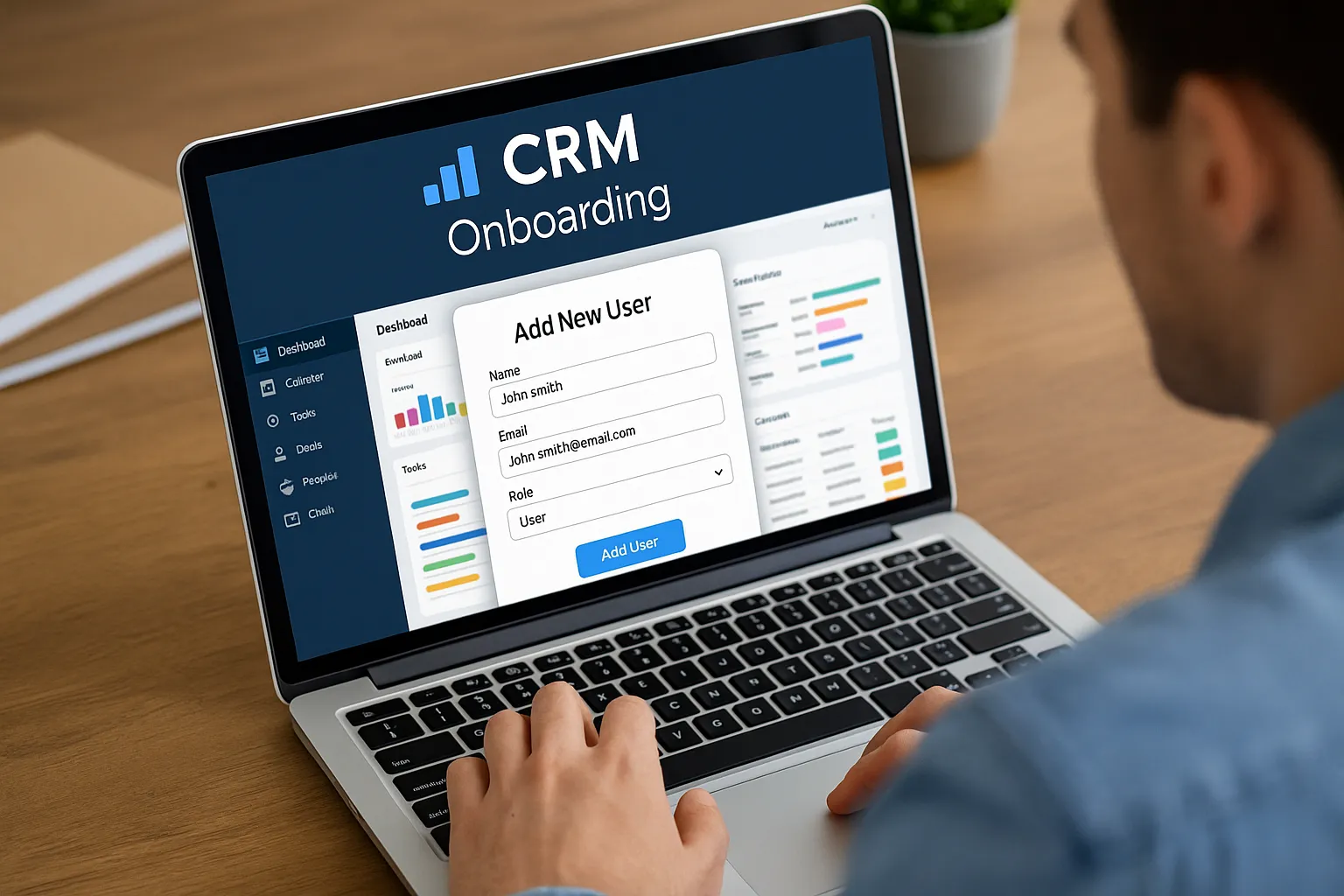Effective onboarding sets the tone for every new client relationship. When prospects become paying customers, the transition should feel seamless—data flows effortlessly into project pipelines, introductory emails fire automatically, and internal teams know exactly what steps to take. Unfortunately, many CRMs excel in sales but stumble when it comes to the critical handoff from sales to service delivery. In this article, I’ll share insights from implementing multiple systems across agencies and consultancies to identify which CRM truly simplifies onboarding. We’ll explore essential features, evaluate leading platforms, and offer real-world examples to ensure your next CRM choice empowers your team and delights your clients.
Why Onboarding Matters in CRM Selection
Onboarding isn’t just “getting started”—it’s the foundation of client satisfaction and retention. A disorganized kickoff can lead to missed deadlines, miscommunication, and frustration on both sides. From our experience at a digital marketing agency, we saw that clients who experienced a smooth onboarding were 40% more likely to renew contracts and refer new business. When evaluating the best CRM for project management, consider how each candidate handles:
Data Migration and Import
Your team shouldn’t spend days manually entering contact details or transferring negotiation notes. Look for CRMs that support one-click imports from spreadsheets, email threads, or legacy systems, preserving crucial context and custom fields.
Automated Welcome Sequences
Immediately after deal closure, clients expect confirmation, next steps, and contact introductions. A CRM with robust workflow automation can trigger personalized welcome emails, schedule kickoff calls, and assign tasks to team members without manual intervention.
Core Onboarding Features to Look For
Not all CRMs are created equal in onboarding functionality. To streamline your process, prioritize these capabilities:
Configurable Templates and Checklists
Structured playbooks ensure consistency. When every new client triggers a predefined checklist—from legal document collection to tech setup—you reduce errors and guarantee that essential steps aren’t overlooked.
Integrated Scheduling Tools
Coordinating initial meetings can be a significant drag without real-time availability sharing. A CRM with native scheduling—complete with calendar integrations, time-zone detection, and automated reminders—drastically cuts back-and-forth. For an example of advanced scheduling features, check out the module at crm.
Role-Based Task Automation
Onboarding often involves multiple roles: account managers, technical leads, finance, and support. A CRM must auto-assign tasks based on deal attributes, send notifications when tasks are complete, and escalate blockers before they become issues.
Top CRMs for Streamlined Onboarding
Based on firsthand implementation and client feedback, these platforms stand out for their onboarding excellence.
HubSpot CRM
HubSpot’s strengths lie in its intuitive workflow builder and comprehensive playbooks. Upon deal closure, HubSpot can:
-
Import contact and company data into custom objects
-
Enroll new clients into onboarding email sequences
-
Auto-create tasks in integrated project boards (via Operations Hub)
Its drag-and-drop editor and library of prebuilt email templates make it easy for non-technical staff to maintain and update onboarding flows. While HubSpot’s native task boards are basic, its ecosystem of integrations—both native and through Zapier—bridges the gap to dedicated project management tools.
Zoho CRM
Zoho CRM, part of the broader Zoho One suite, offers unmatched depth for onboarding. Custom modules allow you to capture industry-specific data, while Zia AI can detect anomalies in imported records. During onboarding, Zoho handles:
-
Multi-stage approval workflows for contracts and NDAs
-
Portal creation for clients to upload assets and track progress
-
Seamless handoff to Zoho Projects, where onboarding tasks populate automatically
Zoho’s learning curve is steeper, but its comprehensive feature set makes it ideal for agencies needing an all-in-one solution.
Pipedrive
Pipedrive balances simplicity with powerful automation. Its “Workflow Automation” tool can trigger onboarding actions such as:
-
Creating tasks in Pipedrive Activities
-
Sending templated emails via the Smart Docs feature
-
Integrating with Calendly or its native scheduling for kickoff calls
Pipedrive’s visual pipeline ensures that both sales and delivery teams see exactly where each client stands in the onboarding journey.
Monday.com CRM
Monday.com’s flexible boards support custom onboarding workflows that live alongside project tasks. New deals can kick off:
-
A mirrored set of tasks on client boards
-
Automated status updates when clients complete forms
-
Integration with Monday’s WorkForms for data collection
Though not a traditional CRM, Monday.com shines for teams that value visual collaboration and real-time team updates during onboarding.
Real-World Implementation: A Case Study
At a mid-sized consultancy specializing in SaaS integrations, the onboarding process spanned seven steps: contract signing, technical requirements gathering, environment setup, initial training, pilot deployment, feedback collection, and full rollout. Using Zoho CRM, the team:
-
Created a custom “Onboarding” module linked to each closed deal.
-
Designed conditional workflows: if a client preferred email-based training, a different task set launched.
-
Automated portal invites, allowing clients to submit technical specs securely.
-
Integrated Zoho Calendar to schedule training sessions, sending reminders 24 hours and one hour before each call.
The result was a 50% reduction in time-to-launch and a 30% increase in client satisfaction scores during the first 60 days.
Best Practices for Onboarding Success
Selecting the right CRM is only half the battle. Follow these guidelines to maximize your onboarding efficiency:
Map Your Ideal Client Journey
Before configuring any system, document every touchpoint and decision path. Use this map to build playbooks and automation logic.
Involve Cross-Functional Teams
Onboarding impacts sales, delivery, finance, and support. Include representatives from each department in workflow design to ensure comprehensive coverage.
Test Thoroughly in Stages
Run pilot onboarding cycles with internal “dummy” clients. Validate triggers, email content, task assignments, and external portal access before going live.
Monitor and Refine
Track onboarding KPIs: time to first deliverable, task completion rates, and client feedback. Iterate on workflows quarterly to adapt to process improvements.
Conclusion
A CRM that makes onboarding simple transforms new-client experiences from a fragile handoff into a seamless journey. By focusing on configurable templates, integrated scheduling, and robust automation, you can reduce manual work, accelerate time-to-value, and delight clients from day one. Platforms like HubSpot CRM, Zoho CRM, Pipedrive, and Monday.com each offer unique strengths—choose the one that aligns with your team’s complexity, technical skill, and growth plans. With the right CRM as your onboarding engine, you’ll set a strong foundation for long-term client success.




